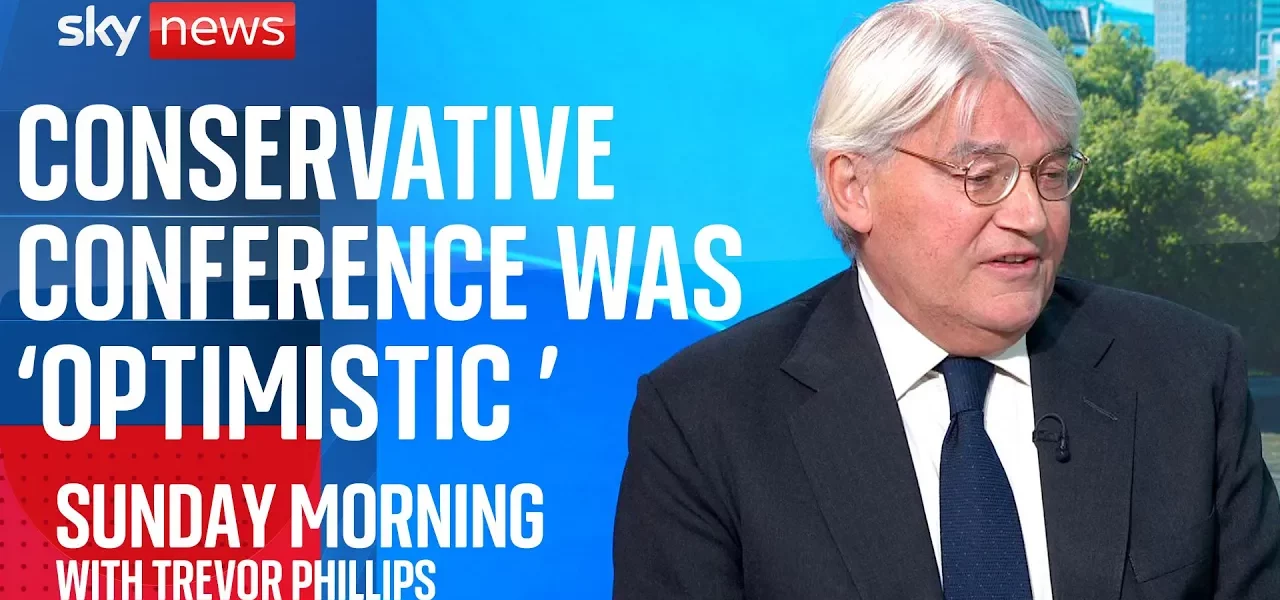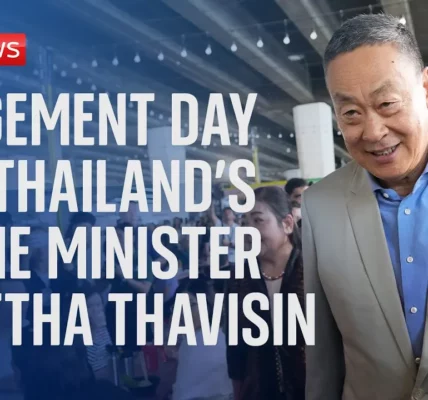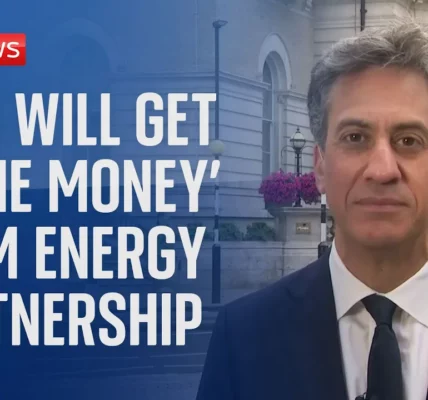Andrew Mitchell Discusses Middle East Conflict and UK Political Landscape

In this article, we delve into Andrew Mitchell’s insights on the current tensions in the Middle East, particularly regarding Israel and Iran, as well as his perspectives on the Conservative Party’s direction in UK politics.
Introduction
Andrew Mitchell, a prominent political figure, recently shared his thoughts on the escalating situation in the Middle East, focusing on Israel’s right to self-defense against Iranian aggression. His comments shed light on the delicate balance of military action and diplomatic negotiations that could influence the region’s stability. Additionally, Mitchell addressed the internal dynamics of the Conservative Party, reflecting on leadership challenges and the party’s future strategies. This article aims to provide a comprehensive overview of these critical discussions.
The Middle East Conflict and Israel’s Right to Self-Defense
Mitchell firmly believes in Israel’s right to defend itself amid ongoing tensions with Iran and its allies, particularly Hezbollah. He emphasizes that the situation has reached a critical point where military responses are necessary, especially in light of the attacks on Israeli territory.
Escalation of Attacks
The conversation highlights that since October 8th of last year, Israel has faced continuous rocket fire from Lebanese territories, rendering parts of Israel uninhabitable. Mitchell argues that no government would tolerate such aggression without retaliating.
- Over 60,000 citizens have been displaced due to ongoing attacks.
- Israel’s military response is framed as a necessity to enforce United Nations Security Council Resolution 1701, which demands Hezbollah withdraw behind the Litani River.
Concerns about Anti-Israeli Sentiment
Mitchell raises concerns that continued military action may inadvertently foster a new generation of anti-Israel fighters in Lebanon. This situation poses a complex challenge for Israel, as military solutions must be weighed against potential long-term political ramifications.
The Role of Hezbollah and International Responses
Hezbollah is labeled as a terrorist organization by the UK government and many international bodies. Mitchell discusses the implications of Hezbollah’s actions and the broader geopolitical context.
Hezbollah’s Influence in Lebanon
Hezbollah’s operations are viewed as a significant threat to Israeli security, and the local population’s resentment towards the group is evident. Mitchell notes recent developments, such as the Lebanese government’s interception of an Iranian plane, indicating a complex relationship between local governance and foreign influence.
UK’s Involvement and Support for Israel
Mitchell emphasizes the UK’s commitment to supporting Israel, including military training provided to the Lebanese Army. The need for a robust strategy to counteract Hezbollah’s activities is crucial for maintaining regional stability.
Implications for UK Politics and the Conservative Party
Shifting focus to the domestic front, Mitchell reflects on the current state of the Conservative Party amid leadership changes and electoral challenges.
Leadership Challenges
With the Conservative Party facing significant scrutiny following recent electoral defeats, Mitchell acknowledges the need for a clear strategy and vision to regain public trust. He notes that the party’s recent conference was an opportunity for candidates to showcase their capabilities.
Addressing Past Mistakes
Mitchell argues that acknowledging past mistakes, such as controversies surrounding leadership figures, is essential for the party’s rejuvenation. He stresses the importance of developing policies that resonate with voters and draw them back to the Conservative fold.
- Recognition of failures during Boris Johnson’s leadership.
- Need for clear policy proposals that address current public concerns.
Conclusion
In conclusion, Andrew Mitchell’s insights provide a critical understanding of the interplay between international conflict and domestic politics. His unwavering support for Israel’s right to self-defense against Iranian aggression reflects the complexities of the Middle East situation. At the same time, his reflections on the Conservative Party’s future highlight the urgent need for strategic leadership and accountability. As political landscapes shift, it is essential for parties to adapt and address the realities facing their constituents. For more insights on the Middle East and UK politics, explore our related articles on the current geopolitical climate and party dynamics.
“`




